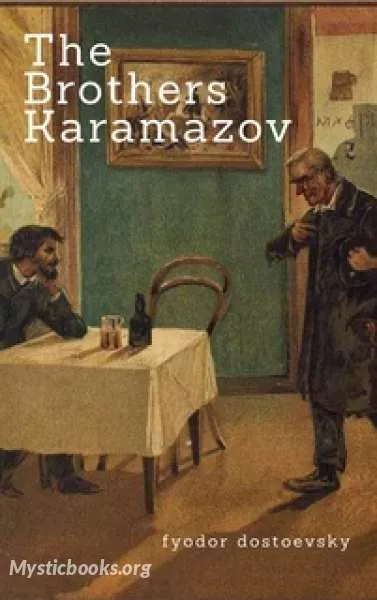
The Brothers Karamazov
'The Brothers Karamazov' Summary
Book One: A Nice Little Family
The opening of the novel introduces the Karamazov family and relates the story of their distant and recent past. The details of Fyodor Pavlovich's two marriages, as well as his indifference to the upbringing of his three children, is chronicled. The narrator also establishes the widely varying personalities of the three brothers and the circumstances that have led to their return to their father's town. The first book concludes by describing the mysterious Eastern Orthodox tradition of the Elders. Alyosha has become devoted to the Elder at the local monastery.
Book Two: An Inappropriate Gathering
Book Two begins as the Karamazov family arrives at the monastery so that the Elder Zosima can act as a mediator between Dmitri and his father in their dispute over the inheritance. It was the father's idea, apparently as a joke, to have the meeting take place in such a holy place in the presence of the famous Elder. Fyodor Pavlovich's deliberately insulting and provocative behaviour destroys any chance of conciliation, and the meeting only results in intensified hatred and a scandal. This book also contains a scene in which the Elder Zosima consoles a woman mourning the death of her three-year-old son. The poor woman's grief parallels Dostoevsky's own tragedy at the loss of his young son Alyosha.
Book Three: Sensualists
The third book provides more details of the love triangle among Fyodor Pavlovich, his son Dmitri, and Grushenka. Dmitri hides near his father's home to see if Grushenka will arrive. His personality is explored in a long conversation with Alyosha. Later that evening, Dmitri bursts into his father's house and assaults him. As he leaves, he threatens to come back and kill him. This book also introduces Smerdyakov and his origins, as well as the story of his mother, Lizaveta Smerdyashchaya. At the conclusion of this book, Alyosha is witness to Grushenka's humiliation of Dmitri's betrothed Katerina Ivanovna.
Book Four: Lacerations/Strains
This section introduces a side story which resurfaces in more detail later in the novel. It begins with Alyosha observing a group of schoolboys throwing rocks at one of their sickly peers named Ilyusha. When Alyosha admonishes the boys and tries to help, Ilyusha bites Alyosha's finger. It is later learned that Ilyusha's father, a former staff-captain named Snegiryov, was assaulted by Dmitri, who dragged him by the beard out of a bar. Alyosha soon learns of the further hardships present in the Snegiryov household and offers the former staff captain money as an apology for his brother and to help Snegiryov's ailing wife and children. After initially accepting the money with joy, Snegiryov throws it to the ground and stomps it into the mud, before running back into his home.
Book Five: Pro and Contra
Book Six: The Russian Monk
Book Seven: Alyosha
Book Eight: Mitya
Book Nine: The Preliminary Investigation
Book Ten: Boys
Book Eleven: Brother Ivan Fyodorovich
Book Twelve: A Judicial Error
Book Thirteen: The Brothers Karamazov
Book Details
Authors
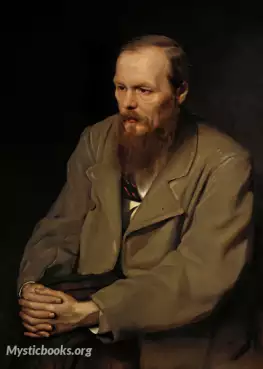
Fyodor Dostoyevsky
Russia
Fyodor Mikhailovich Dostoevsky, sometimes transliterated as Dostoyevsky, was a Russian novelist, philosopher, short story writer, essayist, and journalist. Dostoevsky's literary works explore human ps...
Books by Fyodor DostoyevskyDownload eBooks
Listen/Download Audiobook
Related books
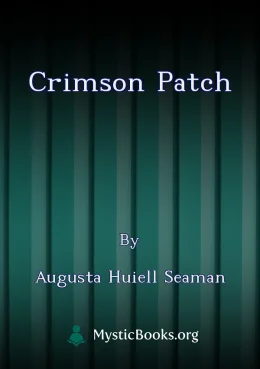
Crimson Patch by Augusta Huiell Seaman
Crimson Patch tells the story of a young girl who finds herself befriending another girl during a stay at a hotel. The new friend, while initially war...
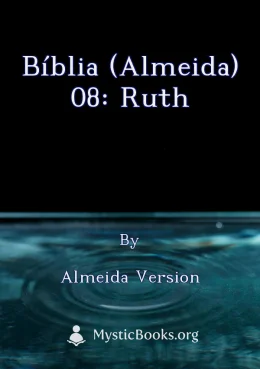
Bíblia (Almeida) 08: Ruth by Almeida Version
O Livro de Rute é uma história comovente sobre a lealdade, a fé e a redenção. Conta a história de Rute, uma mulher moabita que, após a morte de seu ma...
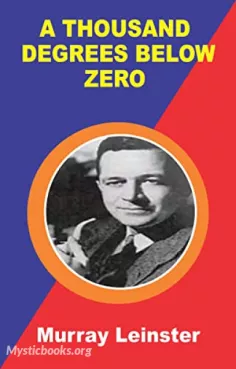
A Thousand Degrees Below Zero by Murray Leinster
In the aftermath of World War I, a mad scientist threatens to plunge the world into a new Ice Age. A Thousand Degrees Below Zero is a science fiction...

Dover Beach by Matthew Arnold
LibriVox volunteers bring you 9 different recordings of Dover Beach, by Matthew Arnold. This was the weekly poetry project for the week of April 8th,...

Commentary on the Gospel of John, Book 9 by Cyril of Alexandria
This volume presents Book 9 of Cyril of Alexandria's Commentary on the Gospel of John, which covers John 12:49 - 14:20. Cyril, a prominent theologian...
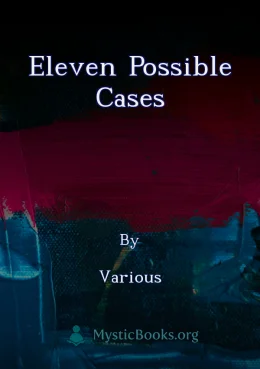
Eleven Possible Cases by Various
Eleven Possible Cases is a collection of short stories, each offering a captivating case of intrigue and mystery. The stories explore various scenario...
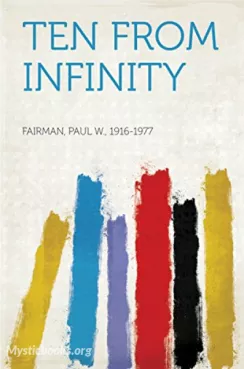
Ten From Infinity by Paul W. Fairman
In "Ten From Infinity" by Paul Warren Fairman, a gripping intergalactic thriller unfolds as a mysterious group of extraterrestrial beings descends upo...

Library of the World's Best Mystery and Detective Stories, Volume 6 by Various
This volume compiles a collection of captivating mystery and detective short stories originating from the East. The stories showcase diverse cultural...
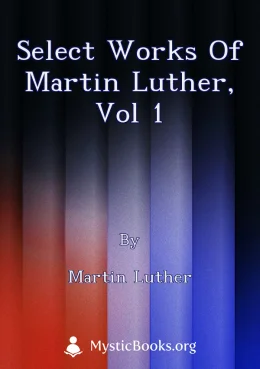
Select Works of Martin Luther, Vol 1 by Martin Luther
This collection of Martin Luther's writings explores the core tenets of Lutheran theology, with a particular emphasis on the doctrine of salvation by...

Grandma's Miracles; or, Stories Told at Six o'Clock in the Evening by Pansy (Isabella Macdonald Alden)
Grandma's Miracles is a collection of short stories intended for children, each drawing upon a specific verse from the Bible. The stories center aroun...
Reviews for The Brothers Karamazov
No reviews posted or approved, yet...